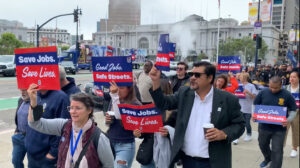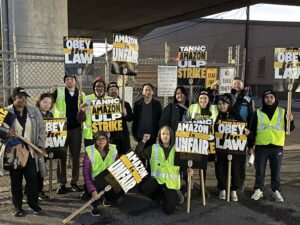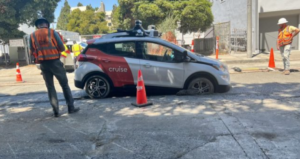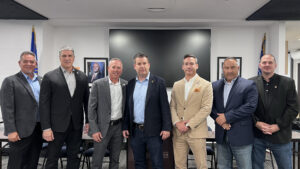Both Democrats and Republicans mad at ‘lords of Silicon Valley’
November 18, 2017Source: San Francisco Chronicle
It was telling that former White House adviser Steve Bannon dismissed the allegations of sexual harassment against GOP Senate candidate Roy Moore of Alabama because they came from the “Bezos-Amazon Washington Post.”
Blaming a tech company taps into a growing populist — and bipartisan — resentment against what Bannon describes as “the lords of Silicon Valley.”While people may love their iPhones, and the public’s opinion of Google and Facebook remains high, those on the losing end of the nation’s growing income gap are finding a new villain to blame: the people making big money in tech.
In Bannon’s opinion, those people aren’t the disrupters they portray themselves as, but part of the political establishment — along with “lobbyists, consultants, and corporatists and globalist elites” who are ruining the country for the working class.
The valley is getting heat from the left, too, particularly over its slow reaction to Russia’s use of social media outlets to meddle in last year’s elections. California Sen. Dianne Feinstein scolded Facebook, Google and Twitter representatives for the “vague answers” she heard at a recent Senate Intelligence Committee meeting.
“I must say, I don’t think you get it,” Feinstein told tech company lawyers. (The CEOs declined to attend.) “You bear this responsibility. You created these platforms, and they are being misused. And you have to be the ones to do something about it — or we will.”Signs of tech resentment that have been boiling for a few years in San Francisco are now popping up elsewhere.
They can be seen in concerns about gentrification in downtown San Jose, as Google moves to develop up to 8 million square feet of office space to accommodate 20,000 of its well-paid workers.
And they can be seen in concerns about self-driving vehicles, which are being developed by Tesla and Google as well as traditional auto manufacturers. There is a growing fear that the more than 3.2 million truck and delivery drivers — people earning solid middle-income wages — will be replaced by those vehicles. Union organizers feel their fear.
“Everywhere I go I hear that the robot car apocalypse is coming,” said Doug Bloch, political director for the Teamsters Joint Council 7, which represents 100,000 workers in Northern California and Nevada.“Why are we acting like it’s inevitable? Why can’t we actually come up with a different vision of the future?”
But tech leaders are starting to listen, to hear that resentment and fear. And there are small signs they’re changing their ways. Rep. Ro Khanna, D-Fremont, who represents part of Silicon Valley, is dubious about Bannon’s sincerity when it comes to anti-tech populism, considering that Bannon used to work for Wall Street titan Goldman-Sachs and the Hong Kong online gaming company IGE.
But after spending part of his first term touring Rust Belt communities in Ohio and Kentucky to learn more about how to help all sectors of the economy, Khanna heard the same anti-tech sentiment expressed there and understands it.
While people in struggling communities “associate tech with prosperity and the future, what they’re frustrated with it is that they don’t have any access to it,” Khanna said. “Their communities have been hard hit economically. Factories have been offshored. They’re seeing all of this technological progress, and newly minted millionaires and billionaires, and their sense is, ‘How is that working for us?’”
Khanna is working on ideas to entice companies to — in the language of the valley — “network” their prosperity to less prosperous areas.
As a sign tech companies are listening, he cited Google CEO Sundar Pichai’s announcement last month of $1 billion in grants to nonprofits to help people adjust to the rapidly evolving workplace. For example, $10 million of that will go to Goodwill, which created the Goodwill Digital Career Accelerator to help people in various parts of the country upgrade their digital skills.
Bloch, the Teamsters organizer, said tech companies seem to be getting the message that they need to share some of the largesse. The Teamsters are working on a deal with San Francisco tech company Marble to test a delivery robot that could be made and operated by union workers.





